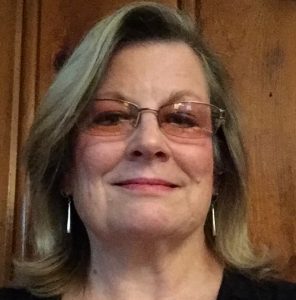Lynn Dey, a Certified Deaf Interpreter*, has been working with Ayuda’s Language Access Program for more than 2 years. In May 2018, Lynn completed Ayuda’s 4-day “Breaking Silence” interpreter training, which covered interpreting for victim services via the provision of victim-centered, trauma-informed interpretation.
Most of Lynn’s work involves interpreting between case managers and their Deaf clients who are victims of domestic violence. However, Lynn has enjoyed the variety of assignments she is able to accept from Ayuda’s interpreter banks.
“Compared to other agencies. Ayuda provides different kinds of assignments. I’ve visited [legal services nonprofits in the DC metro area], interpreted during mediations, therapy sessions, doctor’s visits, the list is long.”
Lynn notes that Ayuda has made great strides to help providers understand the need for professional, qualified, and experienced interpreters, and to guide providers through the process of finding an interpreter who is best suited for their clients.
“Other agencies or providers who are requesting interpretations don’t always understand what they are looking for in order to [find their client’s language match]. They don’t know what to ask for, and Deaf clients can’t always tell them what they need. Coordinating interpretation is hard, and those assignments are sometimes hard to fill assignments. The consequences of not having an interpreter can be drastic. People have gone to jail without knowing or understanding why because of lack of interpretation.”
Lynn recalls interpreting during an Ayuda interpreter bank team assignment (consisting of herself and a hearing American Sign Language interpreter) and the sense of fulfillment in witnessing a Deaf client reach a breakthrough in a case.
“The client was struggling to understand what was happening to her during an investigation. I remember the client’s advocate and an officer being present and could see that there was miscommunication between the parties. By providing interpretation, we helped the officer finish the investigation successfully while also preventing the client from feeling oppressed by the entire situation. It was a very rewarding experience.”
Ayuda would like to thank Lynn for sharing her story with the community. We are honored to work alongside a team of highly-trained, trauma-informed, professional interpreters. Together we can eliminate the barriers of communication and help our immigrant neighbors gain access to services that they need.
*A deaf interpreter (DI) is an individual who is deaf or hard of hearing and possess excellent communication skills in both American Sign Language and English. The DI has been trained in the role and ethics of an interpreter, and may also have specialized training and/or experience in use of gesture, mime, props, drawings, home signs, and matching sentence structure and language development of the deaf person for whom they are interpreting.
In addition, the DI has an extensive knowledge and understanding of deafness, the deaf community, and/or Deaf culture. S/he brings this expertise with him/her when working as a team with a hearing sign language interpreter.
The Registry of Interpreters for the Deaf, the national certifying body for sign language interpreters, awards certification to deaf interpreters, after they pass an extensive written and performance test. This group of interpreters is referred to as Certified Deaf Interpreters (CDIs).


